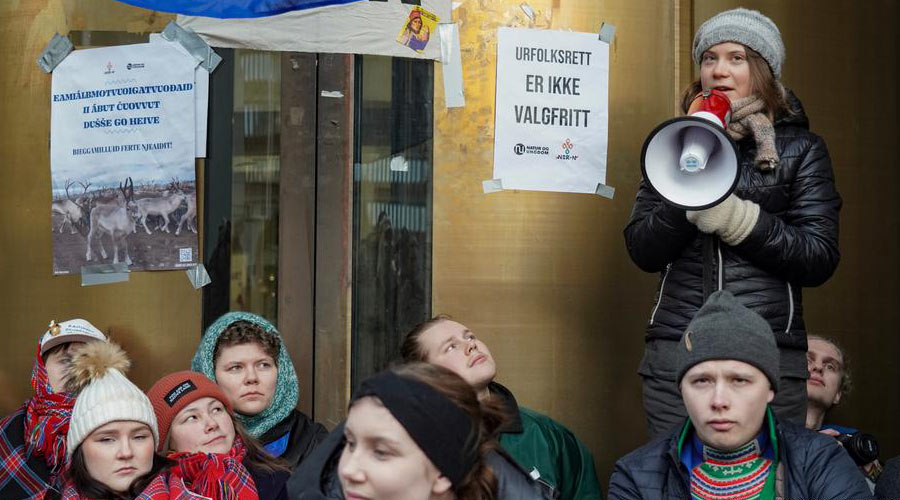The Swedish environmental activist Greta Thunberg joined Indigenous Sami demonstrators on Monday, blocking the entrance to Norway's Energy Ministry.
The demonstrators in Oslo are calling for the government to carry out a court order that deemed wind turbines in northwestern Norway illegal.
Why are the wind farms controversial?
The Sami Indigenous people, who are spread out across mostly parts of Norway, but also Sweden, Finland and Russia, have been herding reindeer for centuries. The practice represents a preservation of both livelihood and tradition.
Herders say the loud sounds produced by the wind turbines scare away reindeer.
In 2021, Norway's Supreme Court ruled that two wind farms on the northwestern Fosen peninsula violated the rights of six Sami families.
The ruling stipulated that the farms breached the UN International Convention on Civil and Political Rights, as they prevented the Sami families from practicing their culture of reindeer herding.
What did Thunberg say?
The Supreme Court's ruling did not say what should happen to the turbines on the farms. The turbines in Fosen, therefore, operate to this day.
"Indigenous rights, human rights, must go hand-in-hand with climate protection and climate action. That can't happen at the expense of some people. Then it is not climate justice," Thunberg told Reuters news agency outside the ministry's main entrance with other demonstrators.
Protesters had occupied the ministry's reception area since Thursday. They were forcibly removed and temporarily detained in the early hours of Monday, only to convene again hours later, this time outside the ministry.
Sami protesters wore the gakti, their traditional costume, inside out as a sign of dissent.
What has the response been?
The Energy Ministry said it was hoping to find a compromise on what it said was a complex legal quandary. It vowed to exert every effort to resolve the matter without taking longer than was necessary.
"We understand that this case is a burden for the reindeer herders," Energy and Petroleum Minister Terje Aasland said in a statement to Reuters.
The 151 turbines provide energy for about 100,000 Norwegian homes.
Farm owners include Germany's Stadtwerke München, the Norwegian utilities Statkraft and TroenderEnergi, and the Swiss firms Energy Infrastructure Partners and BKW.










